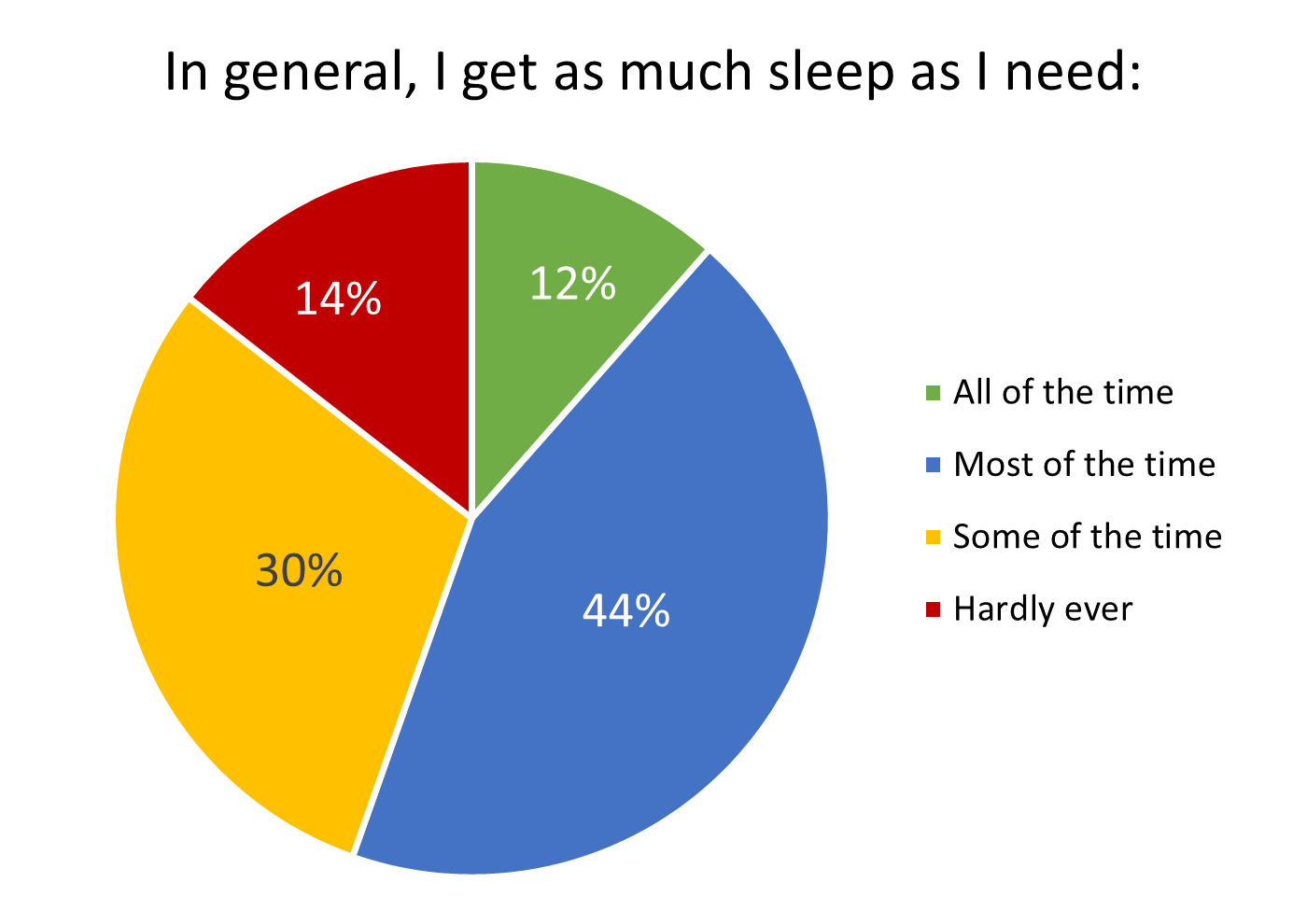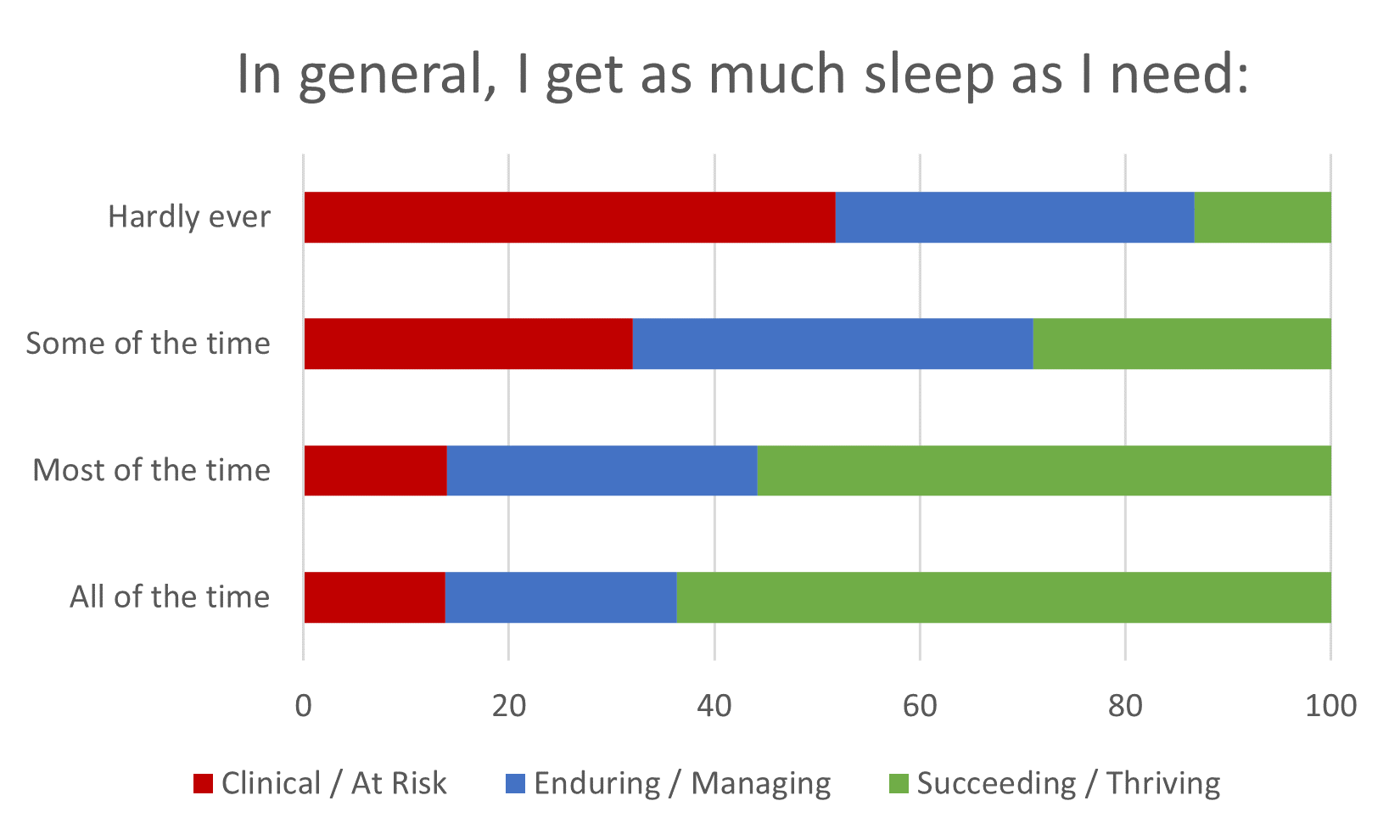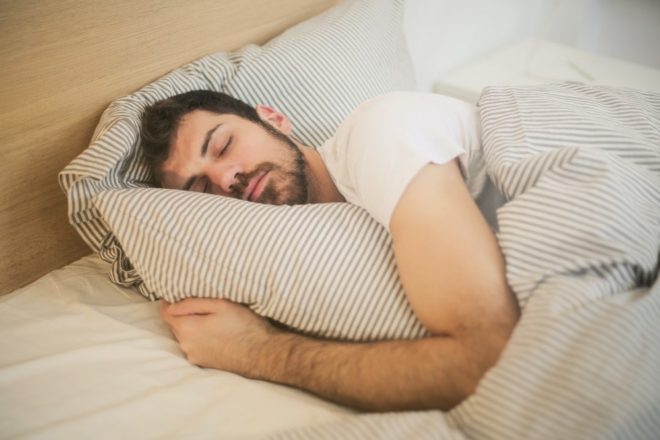Our bodies can do amazing things while we sleep. For instance, the brain sorts and saves information we learn throughout the day and files it away for later use. Also, the pituitary gland releases growth hormones that heal the heart and the blood vessels from wear and tear. Our immune system releases proteins that fight inflammation caused by any injuries or illnesses. Meanwhile, our nervous system finally gets a chance to rest. The impact of sleep on wellness cannot be overstated.
That’s a pretty productive eight hours. But when was the last time you got eight hours of sleep?
A study from the Sleep Foundation found that 1/3 of Americans are not getting sufficient sleep. There are many reasons why people aren’t getting enough rest, but the outcomes of sleep deprivation are always the same. Sleep-deprived people can experience adverse effects on their physical and emotional health that can last a lifetime.
Why Can’t We Sleep?
Serious sleep problems generally fall under four categories:
- Insomnia, which means a person has trouble falling asleep or staying asleep at night. Older people, teenagers, and pregnant women are at higher risk for this issue.
- Sleep apnea, meaning a person has irregular or abnormal breathing patterns that disrupt their sleep.
- Restless Leg Syndrome, a medical condition that causes uncontrollable leg movement because of uncomfortable sensations, like throbbing, itching, or pulling, in the legs.
- Narcolepsy, which is when a person suffers from extreme sleepiness during the day.
There are many causes of sleep deprivation and sleep disruption that impact wellness. Sometimes, it’s as simple as having a cup of coffee too late in the day. Other times, stress can make it difficult to fall asleep or stay asleep. For example, studies have found that workers who work very hard for too little reward often have difficulty sleeping. Other research with college students found that managing family life and high academic expectations disrupted their sleep. At the moment, stressors arising from the pandemic, from job loss to child care, are likely robbing many people of quality rest.
What Happens When We Don’t Sleep?
Physical Health
Sleep deprivation or disruption causes short and long-term impacts on physical health. In the short-term, people may experience headaches, stomachaches and have difficulty concentrating or remembering things. Lack of sleep can also make a person irritable and more sensitive to stressors in their lives. In the long-term, poor sleep increases the risk of cardiovascular disease, metabolic syndromes, and type 2 diabetes.
Mental Health
As a part of the Mental Health Million Project, Sapien Labs asked people how often the got a enough sleep. The results (see pie chart below) show that only 12% of the 20,000 respondents who have completed the MHQ to date reported that they got enough sleep all the time. At the other end of the spectrum 14% of respondents reported that they hardly ever got as much sleep as they needed.

We then looked at how these differences in sleep outcomes impacted wellness and mental wellbeing. What we found was that over 50% of those who struggled to get enough sleep (chose the “Hardly Ever” response) fell within the Distressed/Struggling (previously Clinical/At risk) group for their mental wellbeing, as defined by the MHQ. Meanwhile, 63% those who reported that they always got enough sleep ( chose the “All of the time” response) fell within the Succeeding/Thriving group.

These findings align with existing research about sleep and mental health. Sleep deprivation is a common symptom across almost all psychiatric disorders. In particular, poor sleep leads to an increased risk of anxiety and depression. The causal relationship between anxiety and insomnia can go both ways. An anxious person may not be able to sleep, causing insomnia, or someone with insomnia may start feeling increasingly anxious because they aren’t sleeping well. For those who already struggle with depression, sleep deprivation can make their symptoms worse. Finally, poor sleep can lead to an increased risk of alcohol use and suicide. One study found that a history of sleep disturbances is associated with death by suicide. The overall impact of sleep on our overall wellness is well documented.
What Can you Do?
There are several things that you can do at home to get a better night’s rest. First, try practicing relaxation techniques like meditation or deep breathing. Also, getting regular exercise can boost your mood and help you sleep, but keep your activities scheduled for the morning or afternoon. Working out in the evening could be disruptive.
You can also practice what is called “sleep hygiene” by:
- Avoiding caffeine, especially late in the day.
- Set a bedtime for yourself and create a bedtime routine. The routine will signal to your body and mind that it is time for rest.
- Ban electronic devices from the bedroom. The blue light from phones and laptops can suppress melatonin production.
- If you still can’t sleep after 20 minutes, get up and do something low-key in a dim room, like reading, until you feel tired again.
If sleep problems persist, contact your doctor. Cognitive-behavioral therapy and certain types of medications can help people with insomnia find relief.


















